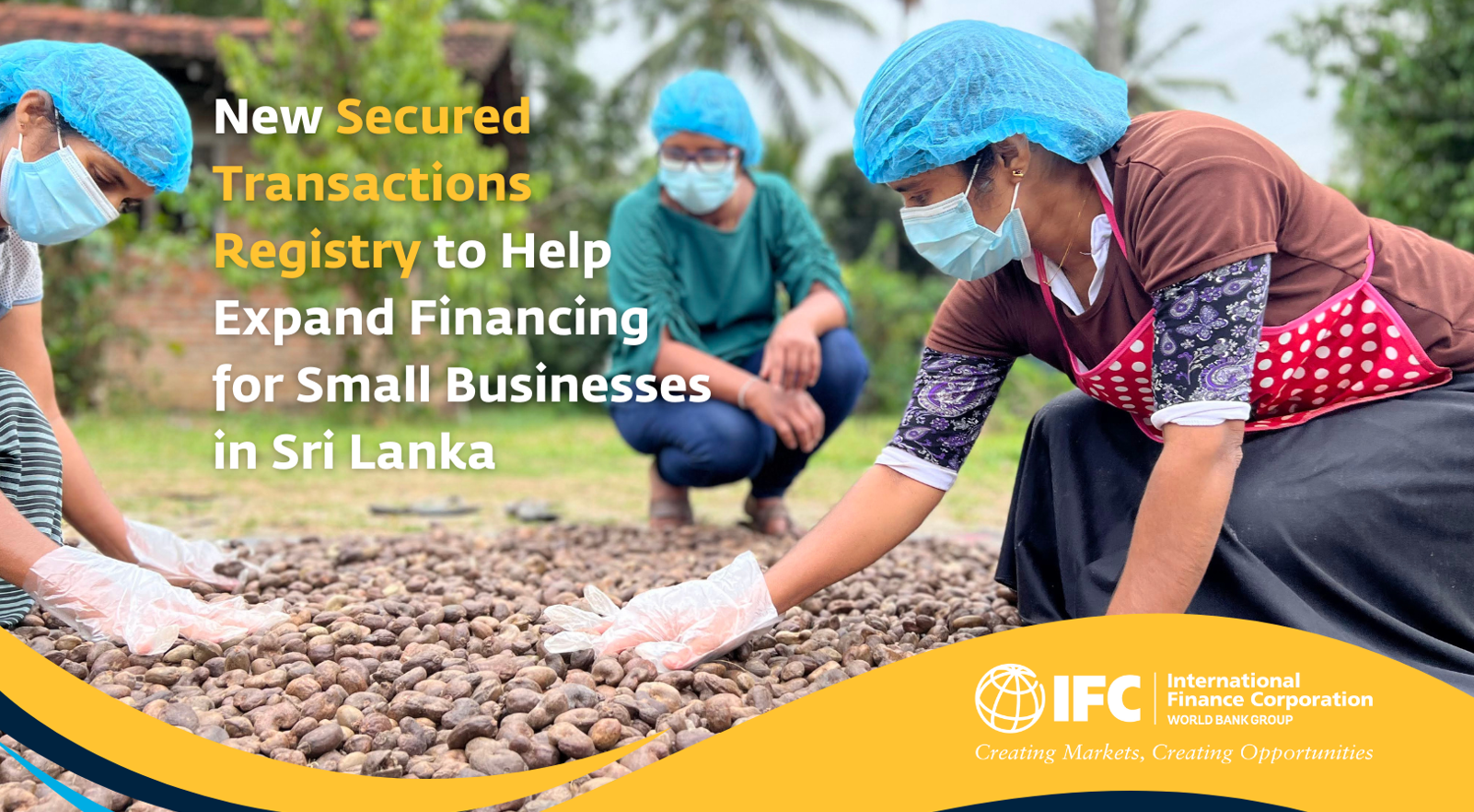
Colombo, Sri Lanka, March 11, 2024—Small and medium enterprises (SMEs) in Sri Lanka are set to benefit from the newly established Secured Transactions Registry (STR), which aims to facilitate the use of moveable assets as collateral for loans while ensuring financial stability and fostering economic growth in the country.
With technical assistance from the International Finance Corporation (IFC), the new Secured Transactions Registry Act aims to address legal and operational challenges in the existing law. This is a collective effort led by the Credit Information Bureau (CRIB), in collaboration with the Central Bank of Sri Lanka and the Ministry of Finance.
SMEs comprise more than 75 percent of enterprises while accounting for 45 percent of employment and 52 percent of the country's GDP. Yet they cite access to finance as one of the key obstacles, hindering their growth potential. Against this backdrop, a robust legal framework to register security interests over movables assets will help unlock the full potential of small businesses in Sri Lanka through easier access to loans.
"The enactment of the new law and consequential amendments to 7 related laws is a critical step in developing a fully-fledged secured transaction framework to mortgage moveable assets in Sri Lanka that protects the rights of all types of regulated financial institutions, encouraging them to provide financing secured by moveable collateral," said Pushpike Jayasundera, Director/General Manager, Credit Information Bureau of Sri Lanka (CRIB).
Globally, businesses are restricted from using movable collateral (such as machinery, inventory, accounts receivables, crops, and equipment) to obtain financing because many countries do not have functioning laws and registries to govern secured transactions. Secured transactions reform is also an avenue that can help encourage women—they are more likely to have movable assets to pledge—to start or expand a business.
"An effective credit infrastructure is key to strengthening Sri Lanka's financial sector. IFC assisted CRIB in drafting the new law, which incorporated several rounds of consultations and expert input, thus ensuring that small businesses and entrepreneurs with few fixed assets can obtain the financing they need to thrive. We greatly appreciate the perseverance and commitment of all the stakeholders to see this legislation come to fruition," said Alejandro Alvarez de la Campa, IFC Country Manager for Sri Lanka and Maldives.
IFC's efforts to improve access to finance and foster inclusion in Sri Lanka span across several initiatives. Apart from supporting secured transactions regimes, IFC helped the Central Bank of Sri Lanka launch the country's first national financial inclusion strategy and develop a financial literacy roadmap, strengthening financial consumer protection and increasing the uptake of digital finance.
About IFC
IFC—a member of the World Bank—is the largest global development institution focused on the private sector in emerging markets. We work in more than 100 countries, using our capital, expertise, and influence to create markets and opportunities in developing countries. In fiscal year 2023, IFC committed a record $43.7 billion to private companies and financial institutions in developing countries, leveraging the power of the private sector to end extreme poverty and boost shared prosperity as economies grapple with the impacts of global compounding crises. For more information, visit www.ifc.org
Stay Connected with IFC on social media.
Contacts
Stay Informed
Sign up to have customizable news & updates sent to you.